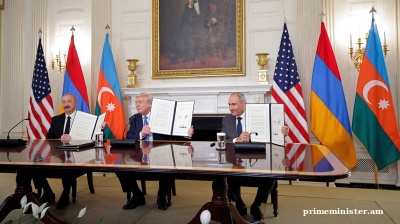Borsa Istanbul investors have since December been busy swatting away the sceptics after the foreign-held share of equities traded on the stock exchange fell into the 58%s for the first time since 2005. The sharp fall was acknowledged but the idea that it was caused by capital outflows was rebutted. It was all down to some negligible reasons, if the defenders of the stock market were to be believed.
Turkey watchers of course are accustomed to this kind of thing. The central bank sharply cuts its policy rate and the lira shows its muscles. It’s all quite normal on the Turkish markets. And the bulls can always work their imaginations to reason why things are so and are nothing to worry about.
It is actually impossible to satisfactorily pin down the data on foreign holdings in Borsa Istanbul stocks as the available figures include “foreigners with moustaches”, or “the moustaches”, short for Turks that trade via foreign brokerage houses. The accounts they are said to use, whether in reality representing foreign or Turk investors, generally perform high volume transactions with a big impact on headline share prices. Thus, observers of the Istanbul stock exchange naturally follow the “foreign share” to obtain some kind of gauge of capital flows into or out of the market.
On January 22, Akin Tuzun of VTB Capital published a note of correction entitled “Foreign ownership back to recent peaks” after having said just 12 days earlier in his monthly Turkish equities monitor: “According to Takasbank, the foreign ownership in equities was falling, while the equity market was rising, in 4Q19. In our other two approaches, we have also observed a drop in foreign ownership uniquely while the equity market was rising… The foreign ownership in the free float of equities has been moving in a narrow band of 61% to 66% for at least 8 years… however, there was an unexplained 1.9ppt drop on 29th of November, which may not be representative.”
VTB January 10 chart:

But on January 22, Tuzun added: “The Turkish equity market has seen a significant re-entry of foreign institutional money in January."

Tuzun also said: "However, it is not easy to track the actual amount of re-positioning, based on Takasbank’s (Central Custody in Turkey) T-2 dataset. The historical foreign ownership data we used to track (i.e. the Takasbank data) has become a bit irregular of late, with significant volatility."
VTB January 22 chart:

"It could be argued,” Tuzun continued, “that this was due to the extreme share price increase in Finansbank (QNBFB). Finansbank’s real free float is actually 0.12%, but if QNB's 99.88% stake, which is registered in the equity market, were to be considered as free float by Takasbank, the weighted average foreign ownership of the whole equity market would increase irregularly. However, if this was true, the rise in calculated foreign ownership would be much more (i.e. 80%+) because Finansbank's market cap is now almost USD60bn (or twice the market cap of the rest of the banking sector). And this is roughly the same amount of the actual free float market cap of the whole equity market (ex Finansbank)."

"In other words," said Tuzun, "as I shall show below, foreign ownership has increased not because of Finansbank ,but due to actual foreign inflows. The next chart is based on the foreign ownership data of the six major banks (Akbank, Garanti Bank, Halkbank, Isbank, Vakifbank and Yapi Kredi Bank)."
.png)
He added: "This is the ‘true’ version of the foreign ownership in the listed banks space. Accordingly, the foreign institutional positioning in Turkish banks has increased back to its recent peaks. This is partly due to the increase in Akbank’s foreign ownership after the sale of a stake by a Sabanci family member. However, there has been a decent increase across the board in all the banks. As a result of this increase in foreign ownership, the banking index has seen a material rally in January. In fact, it is the best performer YTD in the EM space. Given that foreign institutional ownership has reached its recent highs, any further rally from here might run out of steam in the short term.”

So, to sum up, the official data sets are not reliable.
There are sharp outflows and inflows, allegedly from abroad, that can hardly be explained.
Not for the first time, there’s a small bank with a market cap something like twice the market cap of the rest of the banking sector "but foreign ownership does not increase because of those small banks but due to actual foreign inflows".
The owners of large cap banks sell their shares. And, “any further rally from here might run out of steam in the short term”.
On January 23, the central bank’s weekly data pointed to a fresh record high of $122bn in resident real persons’ FX deposits as of January 17.
Timothy Ash of BlueBay Asset Management, responded: “Pretty remarkable—little sign that dollarisation is slowing. Weekly bond flow data also shows foreigners continue to be a small seller of Turkish bonds.
“So local retail/corporate, and foreign institutional don't really buy the story... And yet Turkish markets hold in relatively well—heavy micro management now. Recycling of FX deposits into credit—crushing credit rates lower, and giving an impression of lower risk perceptions—and back into the FX, to support the TRY [Turkish lira]. How long can this go on?”
Opinion

COMMENT: US-brokered Armenia-Azerbaijan peace deal exposes Russia’s strategic failures
The recent peace breakthrough between Armenia and Azerbaijan is a major diplomatic win for the United States and a setback for Russia, according to a new report published by the Atlantic Council.

COMMENT: Why Beijing will never take Taiwan
Xi Jinping needs to think again before he sends so many young Chinese men and women to their deaths on Taiwan, for if the PLA does one day dare to land, they will be buried here.

COMMENT: Ukraine’s coming financial storm
“A crisis is drawing ever closer. It will break in Ukraine, but it won’t begin on the frontlines, where the country’s battle-weary brigades continue to impose a brutal cost on the Russian invader," writes Timothy Ash of BlueBay Asset Management.

BEYOND THE BOSPORUS: Performance postponed. Hotly anticipated “CHP” trial pushed into October
Every Turk up and down the country has an opinion on what Erdogan is up to.



